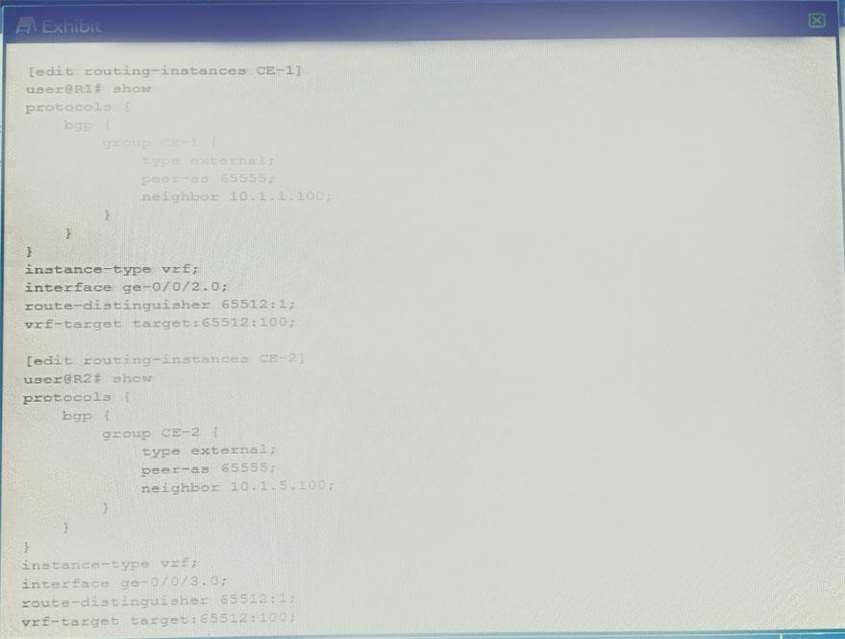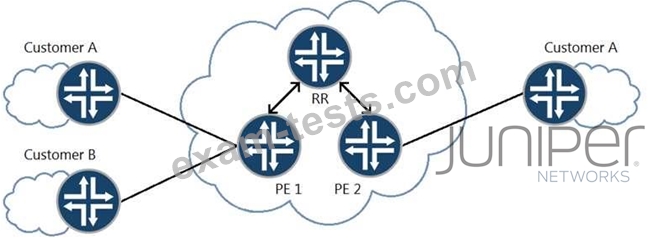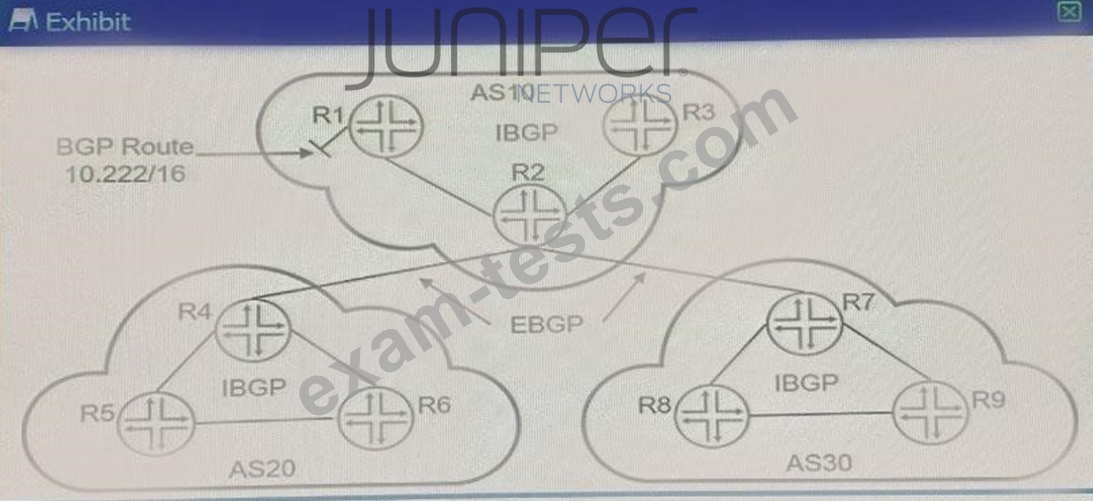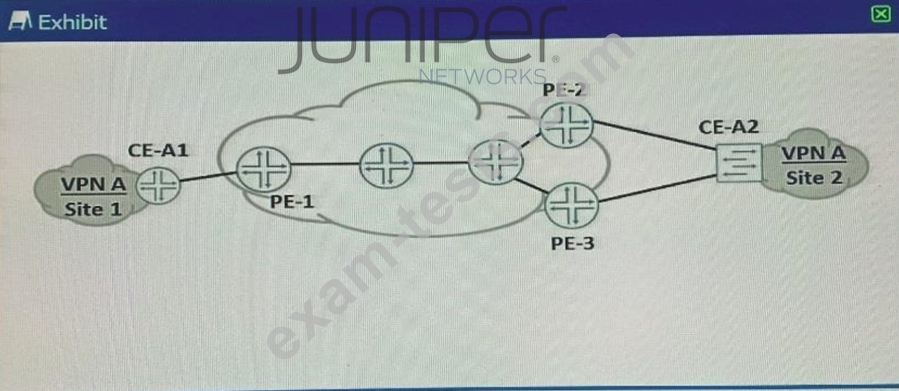Question 6
What information is stored in a VRF table for a BGP Layer 2 VPN? (Choose three.)
Question 7
Exhibit:

Referring to the exhibit, which two statements are true? (Choose two.)

Referring to the exhibit, which two statements are true? (Choose two.)
Question 8

Referring to the exhibit, you want to reduce the CPU processing load on PE 2 by preventing the receipt of routes belonging to Customer B.
In this scenario, which layer 3 VPN scaling mechanism provides this functionality?
Question 9
Exhibit:

Referring to the exhibit, which three statements about route 10.222/16 are correct when using the default BGP advertisement rules? (Choose three)

Referring to the exhibit, which three statements about route 10.222/16 are correct when using the default BGP advertisement rules? (Choose three)
Question 10
Exhibit:

Referring to the exhibit, you need to implement VPLS between CE-A1 and CE-A2 You must ensure that no loops are created due to the multihoming of the connection from CE-A2 to PE2 and PE3.
Based on the type of VPLS, which two solutions will satisfy this requirement? (Choose two.)

Referring to the exhibit, you need to implement VPLS between CE-A1 and CE-A2 You must ensure that no loops are created due to the multihoming of the connection from CE-A2 to PE2 and PE3.
Based on the type of VPLS, which two solutions will satisfy this requirement? (Choose two.)

